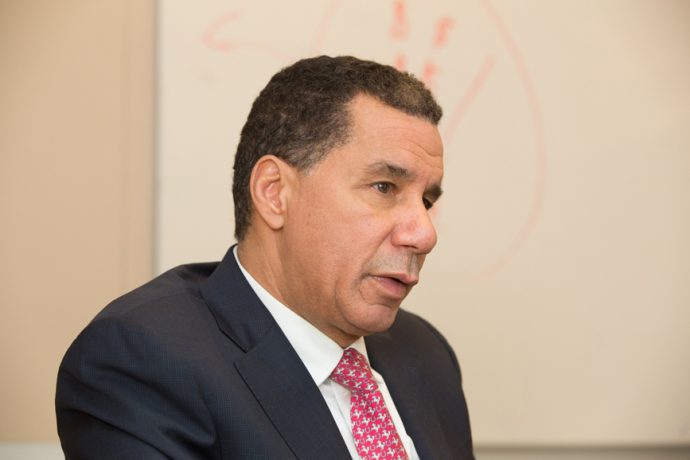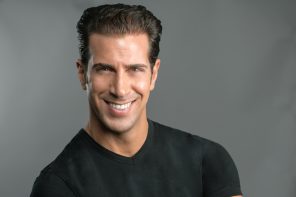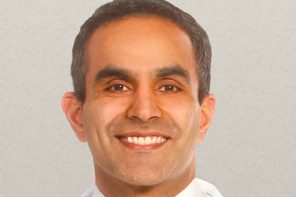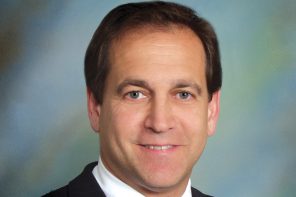The U.S. economy was on the verge of collapse in summer 2008 when New York state Gov. David Paterson made a speech that came to define his tenure.
He had assumed office in March, after Eliot Spitzer resigned over a prostitution scandal. Paterson quickly passed a budget that cut the state deficit by a drastic $4.6 billion. Now in July he was telling the public that the state was facing a $26 billion deficit over the next three years.
Paterson warned that the U.S. economy was facing a recession as challenging as the Great Depression.
“Let’s be honest,” he said. “This situation will get worse before it gets better.”
It did get worse.
Such adversity can easily defeat a political leader. Or it can reveal strength. Or it can instruct.
Paterson experienced all three.
Ultimately, he lost the will of the people and dropped out of politics. But he stuck to an unpopular political path that stabilized the state’s finances. And he got an invaluable education in how government, politics and finances interact.
His speech made an impression on Ed Moldaver. Last year, the financial industry veteran asked Paterson to join his team at Stifel Investment Services’ New York office, and the ex-governor became a director of investments at Moldaver Paterson Lee & Chrebet Group.
“His speech touched on how likely we were to see a financial calamity not seen since the Great Depression,” Moldaver told clients in a November email. “Those who heeded his advice fared much better than most.”
Paterson was an unlikely financial hero.
Three months after he was born in Brooklyn in 1954, an ear infection spread to his optic nerve and left him blind in one eye and limited his vision severely in the other.
He earned a bachelor’s degree in history from Columbia University and a law degree from Hofstra Law School.
Paterson was elected to the state senate in 1985 at age 31. By 49 he was senate minority leader and the first African-American legislative leader in state history.
As a Democrat representing Harlem and the Upper West Side, he said in a recent interview at Stifel offices near Byrant Park, he advocated for a progressive liberal agenda, including a tax-the-rich solution to fixing deficits.
Spitzer chose him to run as lieutenant governor in 2006. After little more than a year in office, Spitzer suddenly resigned, leaving Paterson with two weeks to pass a balanced budget.
It’s not as if he were a complete financial novice.
Years before he had noticed that the state debt had more than doubled in eight years and that the state, New York City, Nassau County and the Metropolitan Transportation Authority were among the biggest debtors nationwide.
“And what I learned is, you can tax and spend,” he said. “And then, there’s borrow and spend. You don’t actually tax the public but you borrow money and run up huge deficits. And so I realized that has become a popular way to defer problems.”
As minority leader, he participated in state budget negotiations. As lieutenant governor, he attended Spitzer’s budget meetings, until he questioned the governor’s budget.
Spitzer wanted to raise spending in 2008. Paterson noted that revenues were down, the housing market was drying up and the stock market seemed about to tank.
“Well, David,” he recalled Spitzer responding, “the market’s up, the market’s down. No one ever knows where the market’s going to be.
“And I said, ‘I don’t know where the market’s going to be, but I sure know where the state is going to be if the market is trending the way most people think it is.’
“Well, I think in that one statement, I voted myself off the island. Nobody invited me to any more budget meetings.”
A few weeks later, he was governor. He learned that tax revenues from the 40 largest corporations was down 86 percent. Then he got a report that said the 16 largest banks were paying 97 percent less in taxes than the year before.
He called for a special legislative session to make more budget cuts and he made the speech predicting a great recession.
A woman called and said the only reason he was governor was because Spitzer messed up and now he’s on TV lecturing about the national economy, “like you think you’re the president.
“That was my mother.”
In September 2008, Lehman Brothers failed. The insurance giant American International Group was expected to fall, but Paterson allowed AIG to borrow funds before federal officials agreed to a bailout.
Paterson had become someone to reckon with. He was appearing on NBC’s “Meet the Press”and CNBC.
Paterson is a man who seems continually bemused by what life has presented him — candid about his shortcomings, confident in what he knows, curious about what he doesn’t know and unperturbed by challenges.
But in 2008, he worried that he would be found out.
“All of a sudden, everybody is listening to me, which I find frightening.
“All they have to ask me is, What is a credit default swap? And I’m dead on national TV.”
Economist Nouriel Roubini calmed him. He said nobody on Wall Street knew what credit default swaps were. So however Paterson answered, everybody would have agreed.
As an unelected governor, he felt a greater sense of duty to keep the state out of default.
The financial hemorrhaging continued. Jobs were lost. State programs were cut to the bone. In 33 months, Paterson and the legislature trimmed $41 billion from the state budget.
His favorability rating in a Siena College poll dropped to 21 percent, from 64 percent, in a year and a half. He withdrew from the 2010 gubernatorial race.
In the years after his term ended, he was named to the MTA board and appointed chairman of the state Democratic Party. There was talk of him running for U.S. Congress.
“I never wanted to be one of those elected officials who was just hanging around endlessly waiting for some kind of new office to open up,” he said. “I always thought that I had enough talent that I should be able to find another career.”
Ex-governors are often in demand for corporate and nonprofit boards, and everything they do is put under a microscope.
Paterson did some radio, started a consulting company and advised a few clients. One client got him in a regulatory bind.
For nine months he was on the board of Medient Studios Inc., a Georgia company that proposed building the largest movie studio in North America. In September, the Securities and Exchange Commission accused three Medient executives of defrauding investors.
Paterson was not implicated in the fraud but the SEC fined him $25,000 for failure to report stock awards in a timely manner.
Paterson said he didn’t know about the stock until it was reported in a newspaper, he never received it and it is worthless. But he said the rule protects investors and “it’s actually a good rule.”
Now Paterson is applying his political skills and hard-won financial savvy to bringing in new clients to Stifel.
He said he was a good political fundraiser and he knows many wealthy people, including some who became good friends.
But he avoids asking them directly for their business. He learned in politics that that once you ask for something big, if you are turned down “that’s the end of the conversation.”
The prospect knows you want to ask for his money, but wealthy people often don’t like to talk about money. So he tries to identify services that can help the prospect, like selling assets.
“You’re trying to get something from someone, and it would be in their best interest to give it to you, but they don’t know it yet. The challenge is to teach them.”
By avoiding the direct request and by not making a sales pitch, you create a conversation that can ultimately reveal what the person wants or needs.
“So what I’m saying is, I think in the ultra-wealth area, you’ve got to be willing to play a longer hand,” he said.
“It also could be viewed as having a certain amount of respect.”





